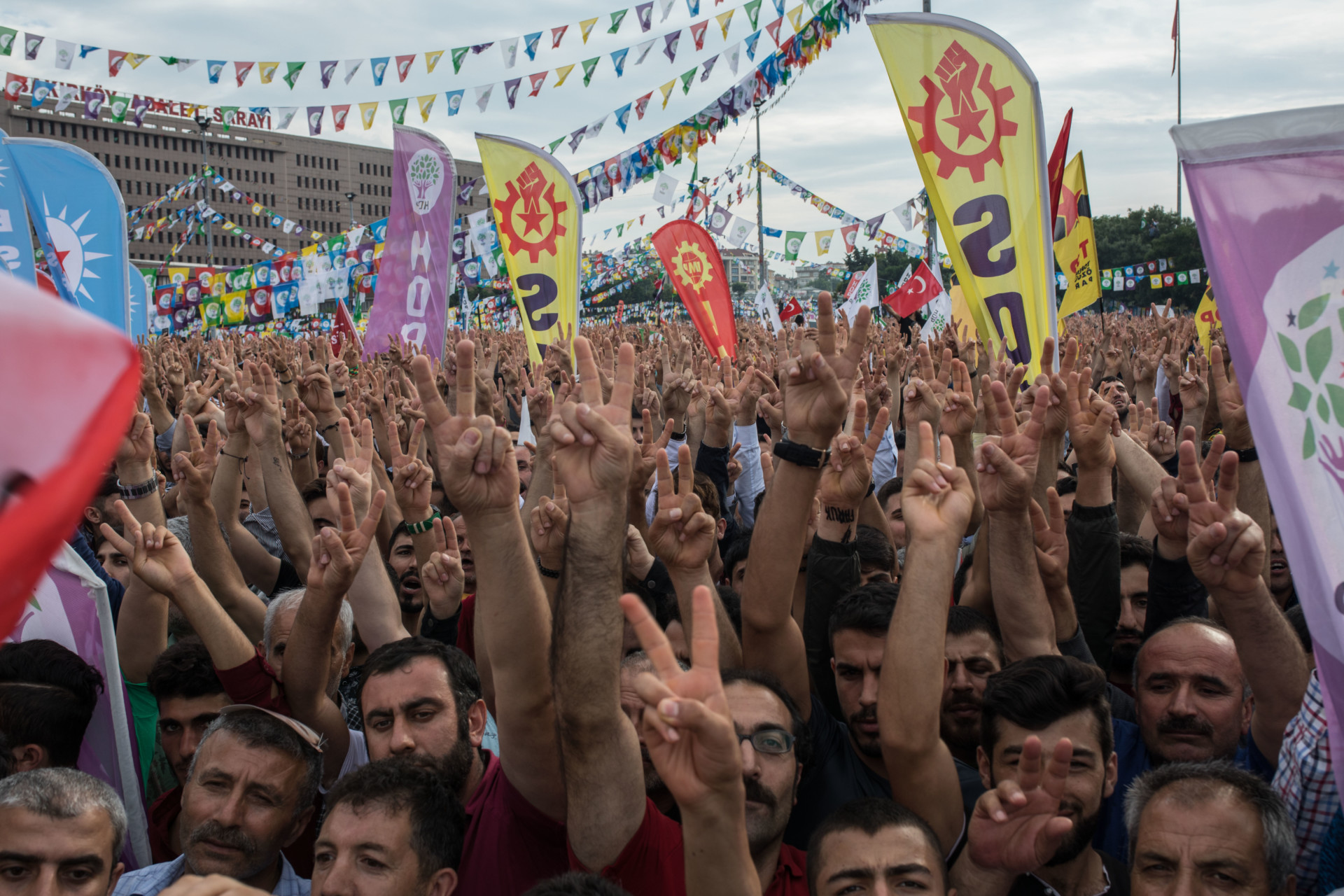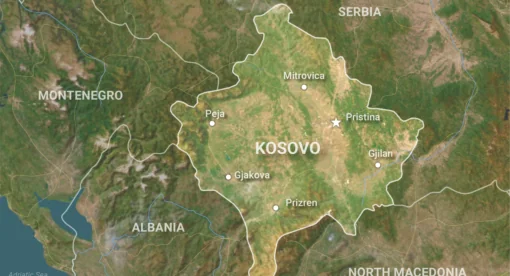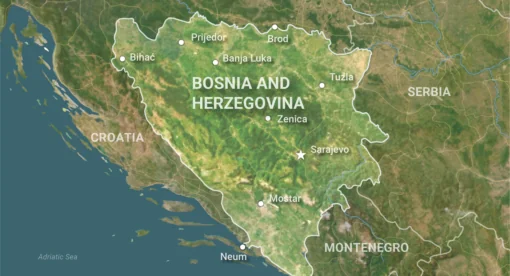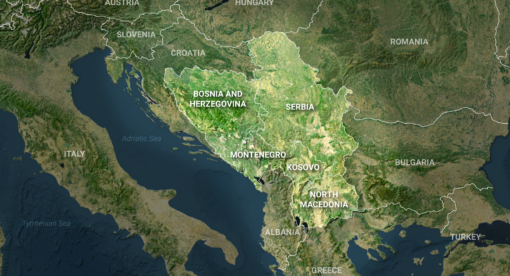The Turkish government wants to shut down the Democratic Peoples’ Party (HDP). This final installment of a three-part analysis looks at the HDP’s options, the potential obstacles Ankara could create between now and the 2023 elections, and courses of action the Biden administration could take in the meantime.
Editor’s Note: For the purposes of this analysis, the author uses “pro-Kurdish” to describe a particular facet of Kurdish representation and activism: the promotion of Kurdish culture, political involvement, and Kurdish identity. There have always been Kurds active in Turkish politics working outside of this pro-Kurdish definition. This analysis centers on the work of pro-Kurdish political parties and is not meant to be an all-encompassing account of Kurdish involvement in Turkish politics.
The Turkish government’s attempt to shut down the pro-Kurdish Democratic People’s Party (HDP) represents both a continuation of the cyclical closure of pro-Kurdish parties and a significant loss to the opposition as a whole. The movement’s shift from a local/regional party to the national stage magnified the anti-democratic effects of Turkish President Recep Tayyip Erdoğan’s crackdown on the party. Pro-Kurdish parties’ historical strategies of survival, as well as the oppressive measures used to silence them, illustrate the challenges the opposition will face in the 2023 elections.
The history of pro-Kurdish parties provides several indicators of their present strategy. The HDP’s role in the opposition is also traceable to its origin as part of the evolution of leftist parties and coalitions. Pro-Kurdish parties have always held extremely controversial views that go against what many of the fundamentally nationalist mainstream parties such as the current primary opposition, the Republican People’s Party (CHP), hold as core values. As such, the HDP and its predecessors walked a fine line of leveraging their roles in parliament among other parties and promoting pro-Kurdish values that often contradicted those parties. Nevertheless, even in these complex circumstances, the HDP and its fraternal Democratic Regions Party (DBP) may be able to use past resistance strategies to run candidates in the 2023 elections, wield their large voting bloc to decide the presidential election, and continue their legacy of political activism for Kurdish rights.
Building and Breaking a Coalition
The HDP is not the first opposition party to struggle to blend and coexist with other leftist parties in spite of their revolutionary ideology. Many of the first pro-Kurdish political parties in Turkey were communist political organizations that prioritized economic empowerment. These parties included Kurds and Turks working toward a common goal. As pro-Kurdish activists became more and more explicit and vocal about pro-Kurdish positions, parties splintered over whether Kurdish rights should be at the forefront of their agendas. As a result, Kurdish activists created their own communist and socialist parties. For many years these groups worked in tandem with their leftist peers, but after the brutal anti-communist crackdown resulting from the 1960 coup, the pro-Kurdish political parties acted more independently and prioritized regional identities rather than communist identities. When the pro-Kurdish movement within the Social Democratic Populist Party (SHP) proved unpalatable for most of the leadership, a majority of the remaining members founded the pro-Kurdish Peoples’ Labour Party (HEP).
Years later, however, Erdal İnönü’s newly founded party – also called the SHP – formed a groundbreaking alliance between pro-Kurdish parties and the leftist mainstream. Although this alliance did not produce significant electoral success, it gave pro-Kurdish parties a powerful ally to work with in parliamentary elections (with pro-Kurdish candidates running as SHP members rather than independents in order to meet the 10% threshold) and parliamentary allyship in opposition to repressive measures against pro-Kurdish parliamentarians. The parties ran on a joint ticket in 1991, and the HEP received 22 deputies. Once again in 2004 this alliance resurfaced (after the re-formation of the SHP) for the local elections, but the alliance was short lived and eventually fell apart over pro-Kurdish activism on the part of the HEP.
This tension between leftist parties and the pro-Kurdish movement continues today, although this relationship now also includes a broader opposition movement composed of more conservative nationalists. Just as the CHP refused to promote the pro-Kurdish movement in the 1990s, nationalists within the party today refrain from an open embrace of their opposition ally for fear of losing their Kemalist base. The HDP is similarly constrained in expressions of support for the Kurdistan Workers’ Party (PKK) and other more radical ideological projections.
Nevertheless, whispers of a CHP alliance with the HDP began as early as 2013, while both parties worked to combat Justice and Development Party (AKP) candidates in Istanbul. When the conservative Nationalist Movement Party (MHP) joined forces with the AKP to vote in the 2017 constitutional referendum, dissenters began to break away. Meral Akşener, the founder of the moderate conservative nationalist İyi (“Good”) Party, chose to defy the MHP party line and join the list of anti-AKP voices. The political environment had become completely bifurcated into pro-AKP and anti-AKP. The opposition would need to chisel away at the MHP’s nationalist base to make inroads in parliament, and so began the trials of the wildly incongruent opposition coalition.

The opposition’s Nation Alliance used a tried and true method of circumventing the 10% threshold by creating a coalition under the CHP and assigning CHP representatives to serve under the İyi Party once they reached parliament. But unlike the newly formed İyi Party, the HDP could pass the threshold by itself. While the HDP never formally joined the electoral coalition, the party is nonetheless seen as a vital component of the opposition bloc. In 2019, the HDP urged its followers to vote for the CHP’s candidate in a contentious mayoral election in Istanbul against the AKP incumbent.
The CHP has generally refrained from more prominent forms of support for the HDP in order to avoid backlash from nationalist allies and its own members. The opposition focuses on demands for strengthening the democratic process, rather than acknowledging issues specific to the pro-Kurdish party. In fact, in 2016, the CHP was among those that voted to strip parliament members of their immunity – a decision members would later regret. This revocation of immunity set the precedent for legal measures that could be applied to members of the CHP. In April 2021, the state issued a motion to revoke CHP leader Kemal Kılıçdaroğlu’s immunity.
The opposition is also divided by smaller conservative parties like the İyi Party, the Democracy Party, and the Felicity Party. These parties are more hardline against the HDP and maintain limited loyalty to the coalition. Although the İyi Party hasn’t openly stated that they will vote to support the summary proceedings brought against members of the HDP, Akşener has previously accused former co-chair Selahattin Demirtaş of being involved in terrorist acts.
Moreover, the Islamist Felicity Party has recently said that it could switch sides in the upcoming election. Although new parties like Ali Babacan’s Democracy and Progress Party and Ahmet Davutoğlu’s Future Party have attempted to reach out to voters in the southeast, the looming threat of Erdoğan’s re-election reform would render these smaller parties essentially irrelevant if they fail to reach the threshold. These dynamics put greater pressure on the CHP’s tenuous alliance with the HDP, and for that matter, the HDP’s status as a legal party. The party’s closure could lead to a disenchantment with the political process in general for many HDP voters, resulting in catastrophic electoral losses for the opposition.
Still, the HDP has remained loyal to the opposition in many ways. During his recent trial concerning the 2014 Kobane protests, Demirtaş flashed a sign reading “Where is the 128 Million Dollars?” The coalition has rallied behind this phrase in recent months to draw attention to dollars sold by state banks in order to bolster the Turkish lira. Likewise, Istanbul Mayor Ekrem İmamoğlu is now reportedly under investigation for meeting with HDP mayors in years prior.

Looking Backward to Move Forward
Bleak as prospects may seem for the HDP and the DBP, the history of their predecessors proves that the closure of a party has never meant the end of the movement. These undead parties are remarkably resilient and cunning. Despite the current uncertainties, the HDP has retained the majority of its support, according to August polls. In essence, pro-Kurdish parties are accustomed to losing representation (their situation in the late 1990s speaks for itself). Inevitably the HDP will need to look backward to move forward. It’s impossible to know the next steps this movement will take, but the Kurdish playbook provides some likely options.
Resorting to Social Movement Tactics
Pro-Kurdish parties have often deployed methods of resistance used by social movements. Party members organize protests, hunger strikes, civil disobedience, marches, sit-ins, and celebrations. Now, the pro-Kurdish movement will have to become even more inventive in its resistance. The HDP may backtrack to its original inspiration: Gezi Park (although it is worth noting that even the 2013 decentralized opposition protest movement proved divisive for some Kurds who chose to forgo the protests over fears that they did not explicitly represent pro-Kurdish demands). In its formative years, the HDP created a concept of “Türkiyelileşme,” an inclusive take on the concept of what it means to be a citizen of Turkey. This attempted reframing of Kemalist assimilation, alongside attempts to promote minority identities like Kurdishness, would likely continue even without the leadership of this particular political party.
Potential for Increased Violence
Unfortunately, both the PKK and factions of nationalist-extremists have already proven their capacity for violence. While recent operations across northern Iraq have significantly weakened the PKK, the group will likely maintain the ability to carry out sporadic attacks both inside Turkey and in Iraq.
The HDP acted as a powerful alternative to the PKK in terms of political participation versus armed insurgency. Participation within the system created a new understanding of pro-Kurdish agency within the state. While the entrance of the HDP into mainstream Turkish politics certainly did not lead to the end of the PKK, the group had the potential to become a powerful mediator in the conflict. In recognition of the importance of the HDP’s activity, the PKK more than once sought to reduce its activity during elections. It is likely that the PKK and some of the HDP’s pro-PKK constituents will use the HDP’s departure from parliament as a rallying cry to their supporters. Many disenchanted pro-Kurdish voters may reconsider their participation within the political system.

Likewise, Devlet Bahçeli’s MHP party (as well as the far-right Ülkü Ocakları and Alperen Ocakları) has gained relative notoriety for its ultranationalist riots and racist attacks. Just last month, a nationalist extremist entered the Izmir branch of the HDP and shot dead 38-year-old Deniz Poyraz. The gunman told police that he was motivated by his hatred for the PKK, which Turkish nationalists accuse the HDP of having close links with. Poyraz’s murder was only the latest in a years-long deluge of rhetorical, legal, and physical attacks against the HDP and its supporters. This violence is not limited to attacks on politicians. Attacks on Kurdish migrants and the recent mob in Konya are further examples of attempts to terrorize Kurds in their daily lives.
Party Members Shift to DBP
HDP members may also be able to use a likely temporary emergency measure should the ban take effect. The party could attempt the age-old trick of shifting members, only this time the party would come preset with a dual platform. This would involve a massive effort to re-establish the DBP as the primary party. There are, of course, caveats to this approach. The DBP may very well meet the same fate as the HDP via the Court of Cassation, and the bulk of DBP politicians are subject to the same probes and arrests as HDP members. The DBP’s abilities would change drastically, depending on whether the court decides to only ban the party and not the members, or extend financial restrictions. On top of this, this tactic would put the reins of the HDP movement, which has so skillfully moved beyond regional constraints, in the hands of its regional party. The impact of this would no doubt be reflected in the upcoming election. The party would also likely be cut off from the HDP’s financial assets.
The potential expulsion of over 600 pro-Kurdish politicians presents a larger issue. The ban would essentially cut the head off of the HDP movement by banning its most prominent members. Regardless, HDP co-chair Pervin Buldan has already indicated that the HDP may continue the struggle through another party if necessary.
The 2023 Elections
With just two years to go until the next round of elections, Erdoğan’s support is dropping in the polls. His party is hovering at 30% while his ally MHP’s support has fallen to around 9%. Undoubtedly the plummeting Turkish lira is playing no small part in his electoral decline.
In order to salvage his coalition, Erdoğan is considering a few important changes to the electoral system. The proposed amendments, which have yet to be released, will most likely target a loophole that past pro-Kurdish parties and the current opposition parliamentary coalition have utilized to work around the 10% threshold. If the HDP ban and this electoral amendment pass, the party will not be able to resort to joining a parliamentary coalition to break the threshold. Ostensibly, the pro-Kurdish movement would face challenges like those it encountered between 1994 and 2007, when the movement had neither a coalition to run candidates through nor a strong enough independent party to break the threshold. As previously mentioned, prior to the formation of coalitions, the Turkish political system essentially limited representation to two successful parties.
Still other potential electoral changes loom. Erdoğan has expressed interest in making good on one of his early campaign promises: He may produce an amendment to decrease the electoral threshold to 7 percent. The current threshold law is generally unpopular, but the timing of this move has set off alarm bells in the opposition. In tandem with the potential changes to the coalition loophole, this amendment would put pressure on smaller parties to run as independent parties in hope of passing the threshold, a big risk since an unsuccessful bid would automatically be transferred to the ruling party. Erdoğan’s coalition has much to gain from this potential strategy.
Other changes floated by Erdoğan include increasing the number of electoral districts again, limiting the entrance of newer party members into commissions, and issuing new laws concerning who can access Treasury grants. Each of these potential changes could weaken the parliamentary powers and electoral results of the opposition, including the DBP or HDP.
Fears of a snap election are also heavy on the minds of those looking toward 2023. Snap elections have become somewhat of a habit for Erdoğan. The president tends to spring elections when the environment suits him: i.e., times of economic stability or heightened foreign operations/conflicts, and during purges. In the previous snap election, Erdoğan denied his intention to initiate the election until the last minute; opposition parties scrambled to prepare their campaigns and coalition plan. A snap election in the midst of the probes launched against the HDP and DBP could hinder efforts to revive or re-form the party before the next election.
The only certainty about the 2023 election is that in the face of the dramatic economic downturn, Erdoğan will have to play all his cards. Changes to the political process in Turkey occur at a rapid pace. Opposition parties are constantly struggling to keep up and redefine their strategy. Any potential changes Erdoğan chooses to enact would likely lead to further divisions in a brittle opposition alliance.
The HDP’s Position
HDP recently published a new declaration on the party’s goals, and in particular what voters could expect from them in terms of its coordination with the coalition. The party expressed its willingness to throw its support behind a presidential candidate outside of its own party and join the coalition in its attempt to re-empower parliament.
Internal Divisions
The HDP is also facing internal divisions as it seeks to balance its collaboration with the opposition coalition parties and its pro-Kurdish base. The recent online discussion over how the Kurdish Question should be resolved indicated that Demirtaş’ vision of resolution through parliament, with a de-emphasis of PKK founder Abdullah Öcalan’s role, represents the strongest vein of the party leadership. Although Demirtaş is no longer the party leader, his alignment with the statement made by CHP’s Kılıçdaroğlu is a good indicator that the opposition will focus on strengthening parliament before delving into more controversial and divergent issues. Conversely, Erdoğan took an entirely different route and claimed that the Kurdish Question had already been resolved.
Disbandment
The HDP has previously considered pulling out of elections in protest of the systemic obstacles against them. Instead, the party appears headstrong in its determination to continue its political movement by any means necessary. Buldan has reaffirmed the party’s determination to challenge its opponents legally and rejects suggestions that the party should essentially self-destruct in light of the challenges facing it. Regardless, it seems increasingly likely that the HDP will be closed or otherwise hindered from the large parliamentary representation it once held.
On the other hand, Erdoğan may already be anticipating the closure of the HDP with his recent visit to Diyarbakir. In recognition of the nearly 2 million votes the majority Kurdish city holds, Erdoğan promised to close the city’s historically brutal prison and reopen it as a cultural center, met with mothers who claim to have lost their children to the PKK, and read poems in Kurdish and Turkish at a youth event. These moves are unlikely to sway the city, as in the 2019 local election it voted over 60% for HDP. Still, the visit drew attention back to the importance of the eastern voting bloc, with both opposition parties and the AKP vying for the open-ended Kurdish vote in the 2023 elections.
The Biden Administration’s Role
Even as the meetings between U.S. President Joe Biden and Erdoğan in June and October inspired some hope that both sides may be seeking rapprochement, both leaders are severely constricted by their campaign promises. Erdoğan, who pushed a hard line against the United States after the 2016 coup attempt, revels in his image as a “strongman.” Biden, however, fashioned himself as a champion of human rights. Yet in order to facilitate a reckoning or even engagement with Turkey on any scale, the Biden administration would need to reconcile with Turkey’s domestic and foreign human rights abuses. Although the Biden administration has shown little interest in drawing a red line at the HDP ban, ignoring the potential party ban would set a dangerous precedent.
U.S. policy should address anti-democratic practices in Turkey as a whole but avoid linking any statement to ulterior unresolved issues such as the administration in Northeast Syria and the PKK. The U.S. partnership with the People’s Defense Units, or YPG, and the Syrian Democratic Forces – organizations Erdoğan accuses of being agents of the PKK – further inhibit meaningful engagement with Erdoğan over the pro-Kurdish party. In effect, considering Ankara’s attempts to equate the HDP with the PKK, the AKP likely would use any direct condemnation of an attack on the HDP to further cement the ruling party’s assertion that the U.S. supports the PKK.
While the Biden administration is picking its battles, the fight for the survival of the HDP is certainly one worth prioritizing. Biden’s recognition of the Armenian Genocide, a move that infuriated Erdoğan, had far fewer domestic ramifications than a condemnation of Erdoğan’s mass arrests, imprisonments, and the potential party ban could. In order to deter Erdoğan from pursuing more radical forms of oppression and complete the cycle of opposition party closure, the Biden administration needs to form a more comprehensive approach that marries trust building in some areas with hard lines on protecting democratic institutions and human rights.
Kayla Koontz studies Kurdish insurgent groups and political movements in Turkey, Iraq, and Syria. Koontz holds an MA from UC Berkeley in Global Studies. She has previously written for the Middle East Institute and Bellingcat and studied and worked in Turkey. Follow her on Twitter at @kay_koontz.
The views expressed in this article are those of the author and not an official policy or position of the New Lines Institute.







